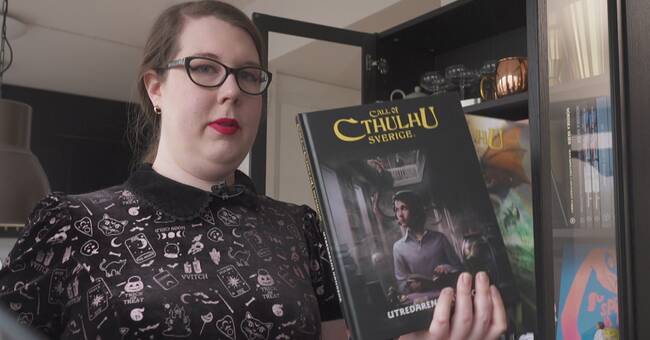HP Lovecraft is one of the 20th century's most influential horror writers.
His tentacles are visible everywhere in popular culture.
The horror master's nightmare-like stories are filled with cosmic horror and his novel characters often stand alone and on the verge of a nervous breakdown, facing both an indifferent universe and monstrous octopus-like creatures.
Stephen King, Joyce Carol Oates and Michel Houellebecq have all made a big impression, as have many other film directors, writers and video game creators.
But Lovecraft's legacy is also controversial.
Some of his stories, and many of his letters left behind, testify that he was a distinct racist, even by the standards of his own time.
Something that sometimes led to divisions among his fans.
- It is something that can be seen in several of his works, including the book Call of Cthulhu.
But as interest in Lovecraft grows and we talk more about him, we also talk more about this.
Previously, it was something that was swept under the rug, says Gabrielle de Bourg, author and role-playing game designer.
Current in HBO series
The TV series Lovecraft country is both inspired by and deals with the author's racist legacy.
The series revolves around a black family, people who have either been invisible, or villains in Lovecraft's short stories, who during the American 1950s are forced to face both discrimination and tentacle monsters.
That the series takes great liberties with its source of inspiration seems to be consistent among those who today build on Lovecraft's worlds.
- Because Lovecraft is "open", that is, that his works are public goods, it means that we can reinterpret them, we can question them and create something new.
We do not need to be stuck in what he thought, says Gabrielle de Bourg, who has been involved in writing the Swedish role-playing game, Call of Cthulhu Sweden.
Carl Michael Edenborg, who himself has been involved in publishing Lovecraft in Swedish as an adult, does not think that Lovecraft's works should be provided with warning texts or stopped from being read.
- No the opposite!
The Cancel culture does not have to affect Lovecraft.
On the contrary, I think it's rewarding to know that he was a racist, that's what Michel Houellebecq also does in his book (HP Lovecraft - against the world, against life, editor's note).
To understand the charge in his texts, it is good to know.

